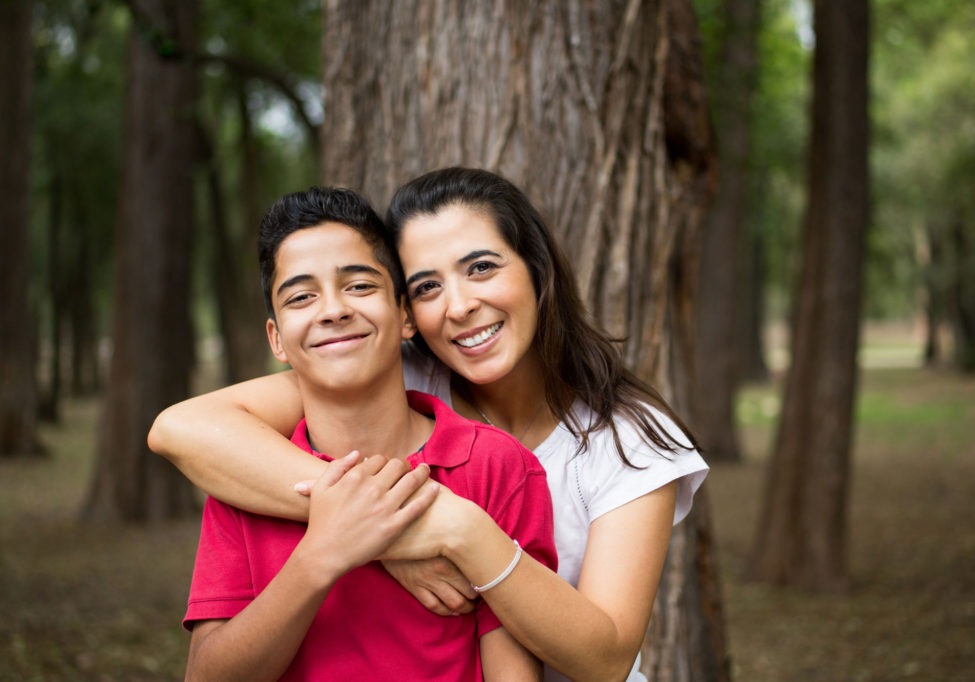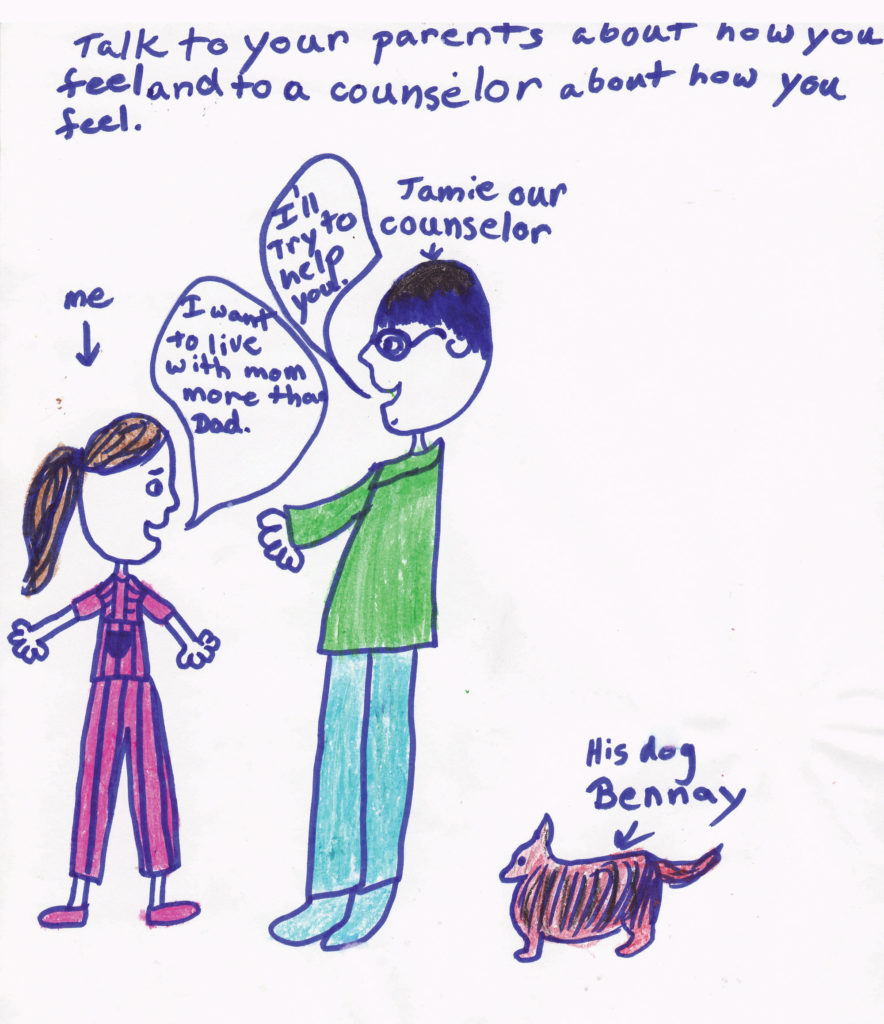This is one of the most frequent questions we at Kids’ Turn receive from parents starting in the separation or divorce process. It is almost always worded as “How do I tell the kids?” We answer that question by reframing it. When we change the I to We, it gives guidance about the words one might use to break this tough news to the kids. More importantly, this helps parents set up a healthy communication method that strengthens the parent and child relationship.
Divorce in the children’s own words
The day a child is told their parents are separating is a day that crystallizes in their memory. Time stops for them at that moment. It really does. To give voice to children’s thoughts on their family situation, we have an exercise in our Kids’ Turn workshops in which they write about their memories and perspectives. To get started we prompt them by asking about when/where they were told that their parents were separating. The children’s words and their tender thoughts express it best:
“I felt about three inches tall because I didn’t know what it [divorce] was and I felt small like nobody cared about my feelings.”
“I felt torn in half and stressed. My dad was first to tell me and then my parents both kept talking about it using big words I didn’t even understand. My heart felt like it took a big leap off a cliff.”
“I tried to not act scared. My brain cells were running around in circles and screaming.”
“I felt like my world split completely into two. What would happen to me?”
“I felt kind of dirty. I felt guilty and I thought it was all my fault.”
“I felt sick, my body actually hurt. I felt like I was going to explode.”
“After mom told me I felt lost and unwanted. It had been always about us kids and then everything just changed.”
“I don’t feel like I can talk about my feelings…I’m scared that they will yell.”
“I felt bad, lost and confused. I couldn’t concentrate at school because I kept thinking about it – all the stuff that would happen when they were trying to get the divorce.”
“My biggest feeling out of all my feelings was that I was unloved. My parent was yelling at me to tell me about it — all of it — all of ‘their’ problems and I didn’t want to hear.”
In every group and session, the kids recall the same worries, anger, feelings of guilt, sadness and fear. Most children worry about where they will live, if they will stay financially secure, if you two will fight, if there will be new girlfriends/boyfriends/step-parents, if they will have to move or change schools, if they will ever see the other parent or feel like a family again. These complex thoughts come on very suddenly to a child who probably never had to consider any of these questions before.
The core of a child’s world is the family
Children’s worlds are very, very small, and the core of their world is their immediate family. When the core of their family breaks up it may be completely devastating. Parental separation rates very high on the spectrum of Adverse Childhood Experiences (ACEs) – read more about these here.
Yet, it is not exactly the divorce itself that is damaging. Children can be very resilient. With proper support, parental love and communication they can make it through all kinds of adverse experiences. What is ultimately destructive — and what children cannot navigate without damage — is a separation that continues with conflict and/or division.
A child’s ability to navigate a separation boils down primarily to you as parents and how well you handle the separation personally, how well you and the other parent manage to stay on the same page; and how well you keep the children out of the middle of any conflict the two of you may have.
Tell them together in simple language, with love
So, how do you tell the kids? You tell them together in simple and age appropriate language. You tell them with love and understanding that although the news could feel very devastating, they are going to be okay. You explain why they do not need to be afraid or worried. You release them from any feeling of guilt, letting them know they did not break your union and it is not their responsibility to fix it.
Make promises and stick to them
You make promises and then stick to them. Promise that you both love them and they will always be able to continue their relationship with both of you. Divorce will not change or divide your love for them. Promise you will always be willing to talk to them about their feelings and you really want to know about any worries they may have. Remind them that even though they may be going back and forth between homes, whether they are physically with you or not they are always your priority and you will always keep them safe.
Posted in: Health & Nutrition, Youth & Teen
Comment Policy: All viewpoints are welcome, but comments should remain relevant. Personal attacks, profanity, and aggressive behavior are not allowed. No spam, advertising, or promoting of products/services. Please, only use your real name and limit the amount of links submitted in your comment.
You Might Also Like...

Helping Introverted & Highly Sensitive Kids Thrive
These days my teenage daughter cheerfully refers to herself as an ambivert, meaning a person who has both introvert and extrovert qualities. But this was not always the case. When […]

Sacred Mountain Harmonics: Discover the Healing Power of the Harmonic Egg
Light, sound vibration and a resonance chamber merge to bring balance and healing to anyone’s body at Sacred Mountain Harmonics. Located in Mount Shasta and owned by Donna Bringenberg, this […]

Classic Books to Make Your Kids Fall in Love with Nature
In these classic books, exceptional illustrations and simple, clear words make these books burst with information about the natural world. After reading one of these classics, take your kids on […]

To My Teenage Son: What I Want For Mother’s Day From You
I know better than to expect a handmade card from you this year. Or a necklace made out of macaroni noodles or a stone painted with the words, “Mom, you […]




